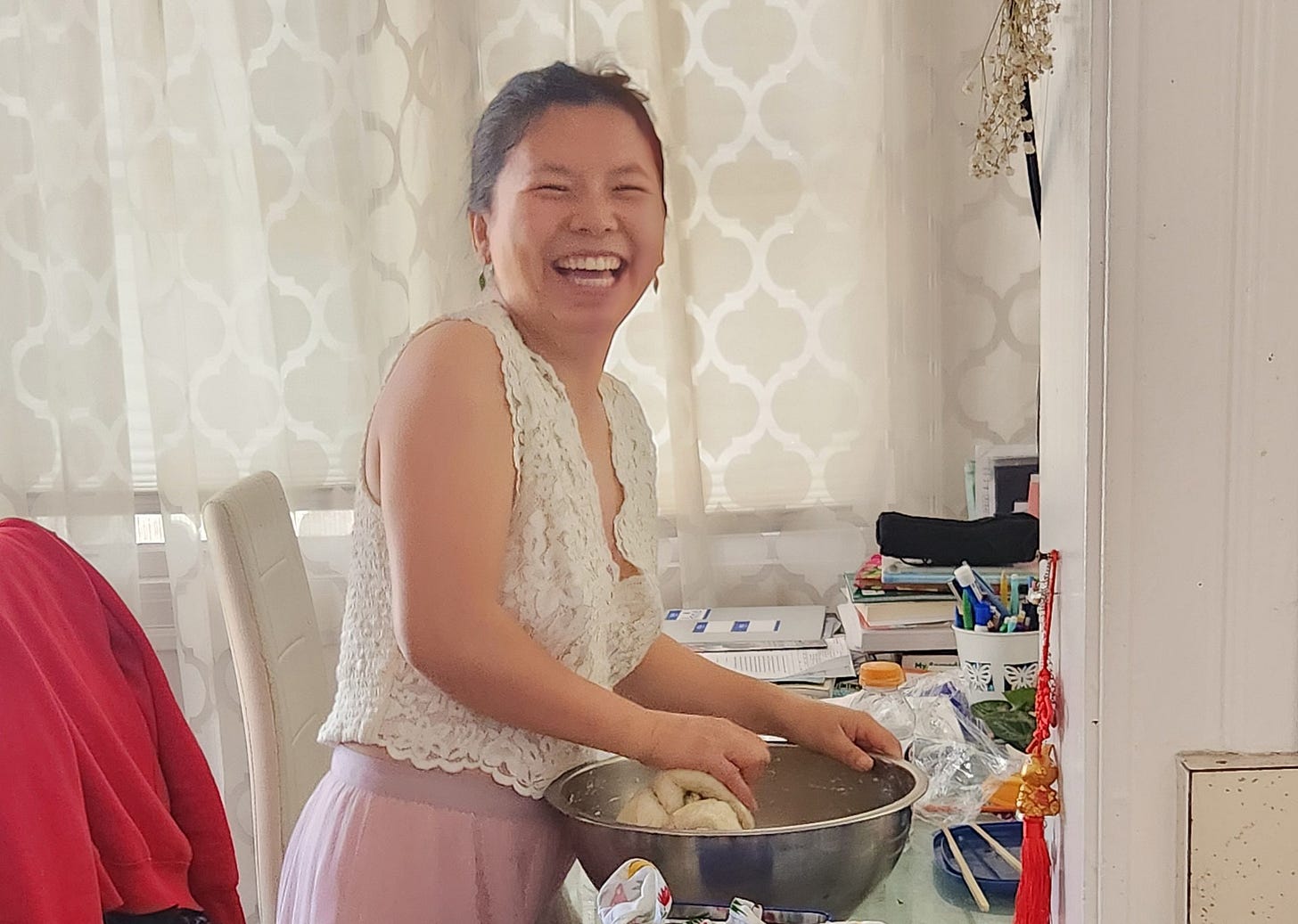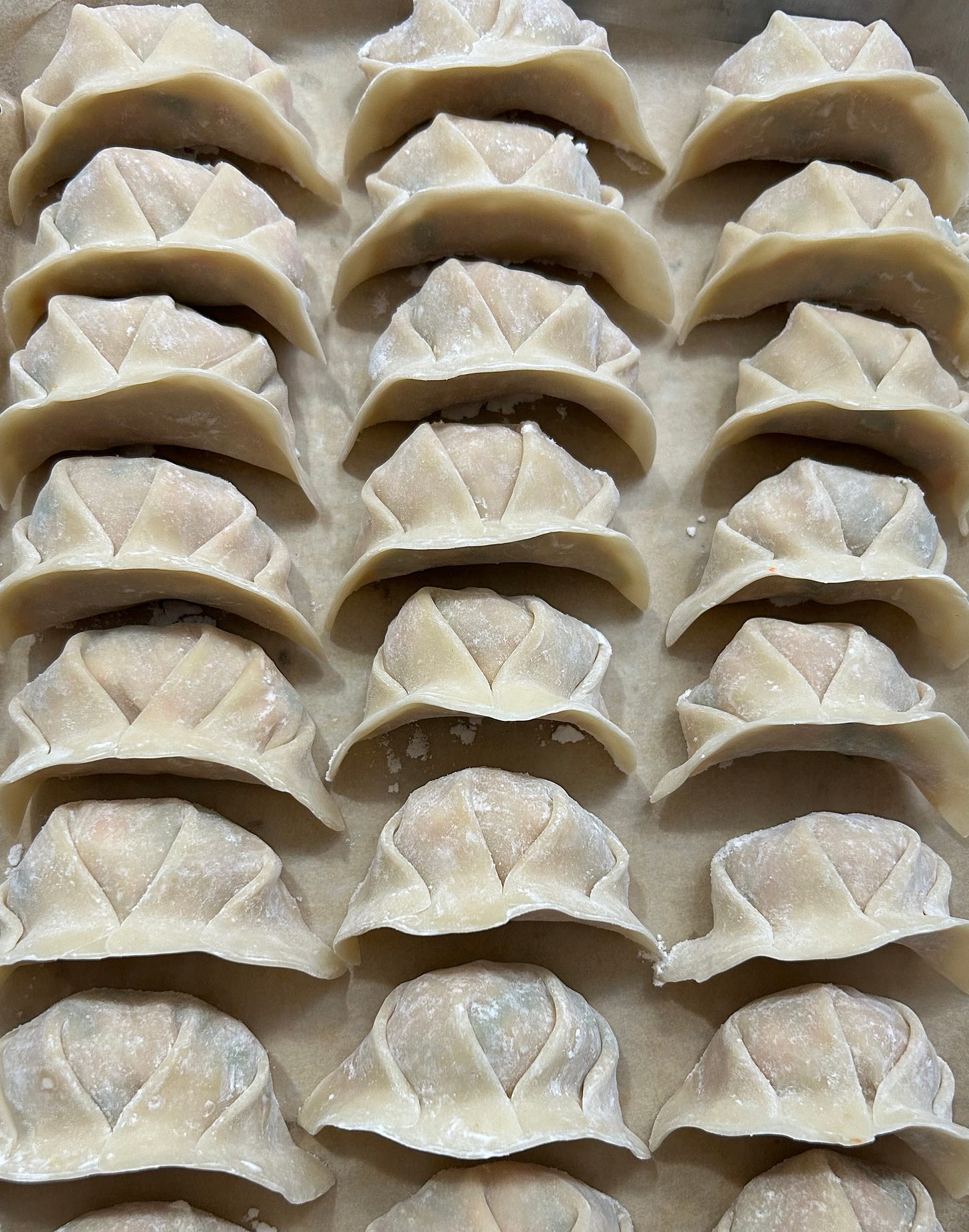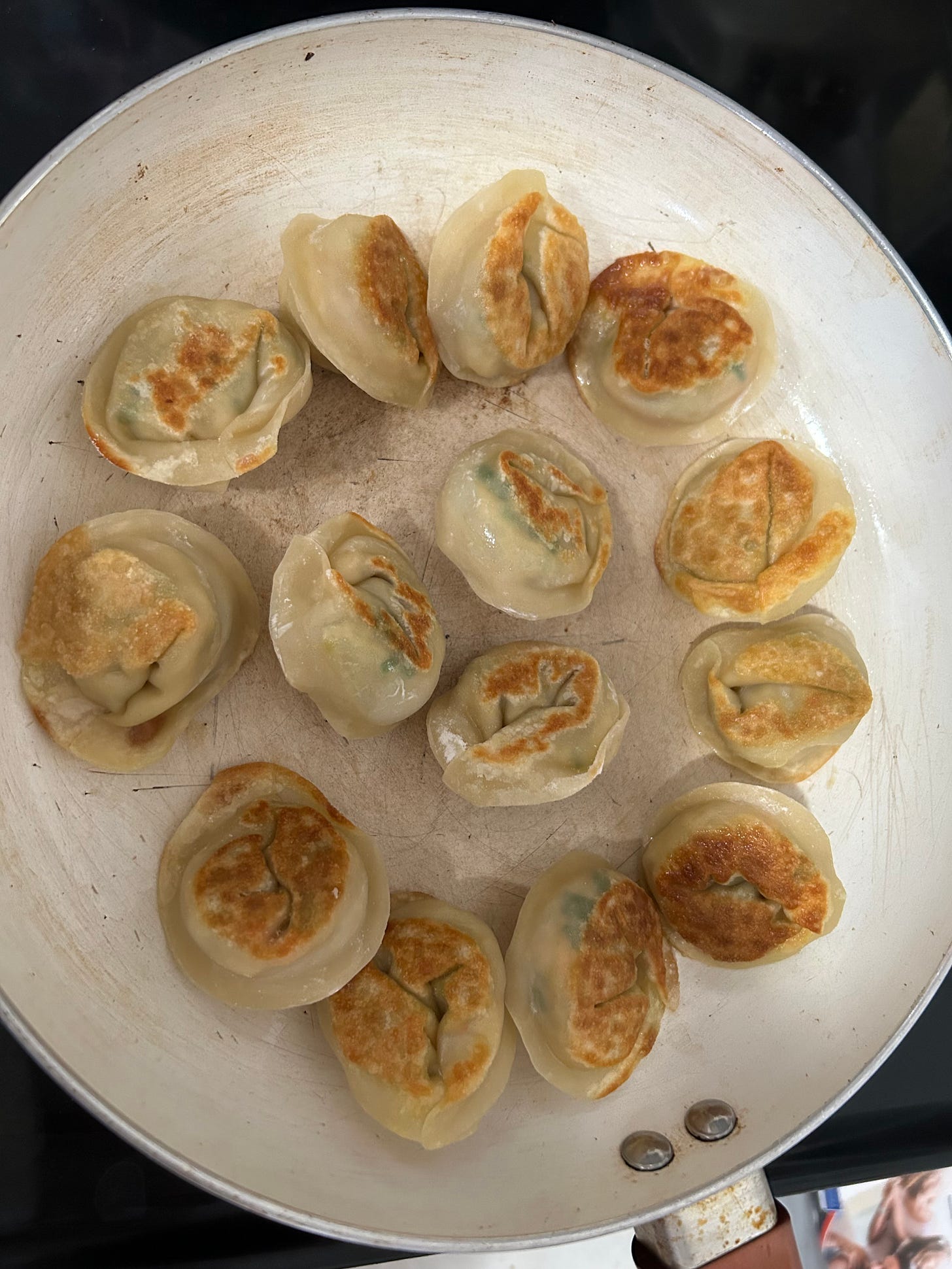The dumpling fairy of Sebastopol
Annie Ke brings a two-thousand-year-old Chinese tradition to Sebastopol
Is there anything quite as comforting as a dumpling—those tasty little surprise packages filled with warm and savory fillings? Annie Ke doesn’t think so. Ke, whose name in Chinese is Xiaojuan Ke, moved to Sebastopol seven months ago, and dumplings—which she makes by the hundreds—are a soothing reminder of home.
Ke, who has her PhD in agriculture from Nanjing Agricultural University, grew up working on her family’s farm in China’s Hubei province, a farm her family has worked for 400 years. She was always drawn to agriculture. There were six children in her immediate family, and financially, things were tight.
“Our parents, they do farming, but we barely make ends meet, and so the kids need to help. So our parents normally ask us, “Do you guys want to stay at home, cooking and cleaning the house? Or do you guys want to go to the farm and work with me? I always chose the farm,” Ke said.
Nonetheless, she spent enough time in the kitchen to learn how to make dumplings of all shapes and sizes. You may have seen some of her handiwork on Nextdoor, where she regularly posts about her dumpling-making adventures.
Regarding the type of dumpling she makes, she said, “It’s more like a traditional Chinese style. The most common stuff we put in is pork, pork with chives—chives is a more Chinese-style vegetable. Then we also put cabbage…Most of the time, we try to balance. We put meat with vegetables together, so the flavor is kind of balanced, also the nutrition is balanced. We also very often make the chives with eggs—we use the eggs a lot; we pan fry the eggs first. Also, my parents, they used to, even now, sometimes they make tofu. That was kind of the main protein for us when I grew up is eggs and tofu.”
When asked if she steams or fries her dumplings, she said, “Most time, for my cooking, I mostly like to hot boil them because I like the soup. It’s very simple soup. We just use plain water, and add a little bit of salt, and then boil the water, put the fresh meat dumplings in, then fully cook them, then eat them with the water. There is no meat in the soup—like it’s not chicken broth—because there's a lot of flavor in the dumplings.”
Ke said she’s thinking of going into the dumpling business, but she’s doing a little market research first. For now, she works as a special education aide—she’s studying to get her degree in special education—and does gardening on the side.
“I really like agriculture,” she said. “Gardening is like meditation for me. It’s relaxing and I enjoy it.”
And for fun—and to please her seven-year-old daughter—she makes dumplings.
“I really enjoy that people like my dumplings because dumplings always bring me joy,” she said. “We make dumplings every year for Spring Festival and for special events like family reunions, weddings, baby showers, that kind of thing. So it's a very special thing, and dumplings also represent a very nice meaning in our culture: it represents good luck and good health.”
Ke said that in China dumplings are associated with health because, according to legend, they were originally created as a medicine. “Growing up, we heard stories about how our ancestors created the dumpling,” she said. “There was one time a lot of people were getting sick, then there was a very famous doctor, and he created a recipe, cooking these kinds of dumplings.”
Wikipedia tells the story this way:
Traditionally, jiaozi were thought to be invented during the era of the Eastern Han (AD 25–220) by Zhang Zhongjing, who was a great practitioner of traditional Chinese medicine. Jiaozi were originally referred to as "tender ears" because they were used to treat frostbitten ears. Zhang Zhongjing was on his way home during wintertime when he saw that many common people had frostbitten ears, because they did not have warm clothes and sufficient food. He treated these poor people by stewing lamb, black pepper, and some warming medicines in a pot, chopped them, and used them to fill small dough wrappers. He boiled these dumplings and gave them with the broth to his patients, until the coming of the Chinese New Year.
Ke, who is currently living at a friend’s house in Sebastopol, eventually hopes to buy her own home in California—perhaps by founding a dumpling empire, perhaps in some other way.
“My goal is to try to get a house,” she said. “I think you probably understand the price is so high, but my feeling is because my family was—well, we are like generations of farmers, we always own our own house, we stayed at the same house, the same land, the same village for over 400 years. So my feeling is only owning my own house can make me feel safe. I don’t feel comfortable by renting.”
In the meantime, she’s working, gardening and making dumplings.
To order dumplings (or if you’re looking for a very educated gardener), you can reach out to Annie Ke at 707-503-9946.







LOVE this